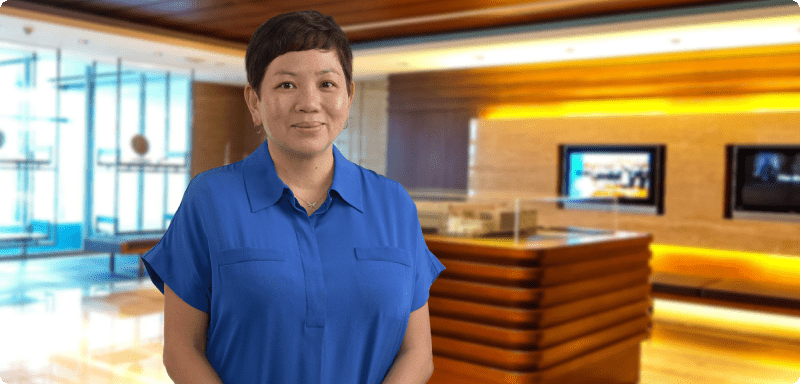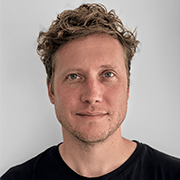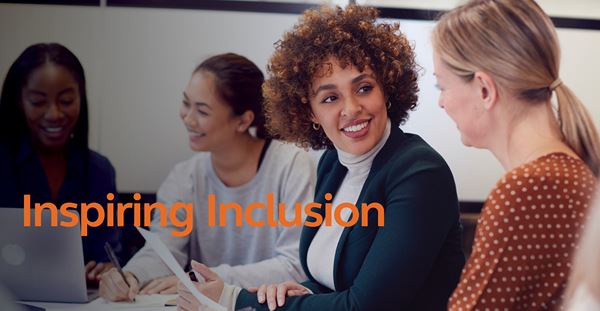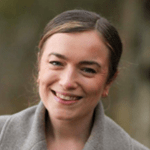Conversations for Change is a blog series that highlights exceptional people from diverse backgrounds, promoting inclusive discussions and positive global impact. Explore with us as we feature inspiring Arcadians, amplify their voices and contribute to a more inclusive and equitable future through thoughtful conversations.

Kathy Teoh
How do you define Gender Equity and actively promote it in your work environment?
As the Global Diversity, Equity, Inclusion and Belonging Director, I bring to life our 3-year People & Culture strategy which contains multiple initiatives to drive equity – from enhancing our hiring practices, developing talent and retention practices to finally ensuring that we a adopt an inclusive culture where every Arcadian feel that they belong. Beyond this, I also partner with one of our Global Business Areas – Places leadership team to identify opportunities for creating awareness for the need of inclusion through education and addressing workplace accessibility from the lens of the various under-represented minorities. Being based in Singapore (Australia and Asia region), I am conscious that any global initiatives require a nuanced local approach as we need to respect the cultural differences here in our Asian offices. I love meeting our colleagues from all parts of the world and getting to know them - to understand what drives them and what motivates them to do their job. I love the fact that I support our colleagues to bring their authentic selves and be their very best at work. What I enjoy most is knowing that I can influence the culture change and continually improve our colleagues’ experience within Arcadis.

In a traditionally male-dominated industry, what specific obstacles or biases have you encountered, and how did you overcome them to succeed in your career? What lessons have you learned from these experiences?
When I speak at conferences and events, I always introduce myself as a ‘woman in tech’ who have worked on IBM mainframe machines. Today, we know that IBM mainframes exist only as a museum piece in the Museum of Computers, and that everything is ‘in the cloud’ now. Not only does this go to show the acceleration of technologies to enable cloud computing, it’s also very telling of my age. While working in the tech industry, I have often observed other women and including myself, have experienced exclusion – we were talked over, our ideas were not credited, we faced gender stereotypes and implicit discrimination etc., and it is this desire to change and create a more gender balanced and equal workplace which enticed me to pivot into a career in Diversity, Equity, Inclusion and Belonging.
What advice would you give to individuals entering the AEC industry? What was the most impactful piece of advice you've received on your journey so far?
My biggest learning opportunity is to debunk the myths (stories) which society has cast women in. Here’s a couple, ‘women are too emotional’ and ‘mothers are not committed to their work’. These myths hold women back in the workplace and my advice to others and myself is to shatter such myths and change the narratives by asking others ‘will we say that if it was a man’.

What motivates you in your work? In your ideal world, what would best practice look like?
I believe a passion for equity and social justice is an essential ingredient to be a Global Diversity, Equity, Inclusion & Belonging (DEIB) Director. Beyond passion, continuous learning, and education helps to open up one’s mindset and reflect on one’s privilege. When I chose to pivot into this field, I pursued a master’s degree in Gender and Equality studies (at University College Dublin) which equipped me not only with knowledge, but also the network of communities as well as acquiring an ‘activist’ mindset. Having said, my prior experience and skill sets as a program manager are transferable as our DEIB strategy does not operate in a vacuum. In fact, some of the key skills required for this role to succeed are parallels to project management field. These include the:
i. Ability to organize as I constantly have to juggle various projects/initiatives within a complex working environment.
ii. Ability to practice active listening, connect and communicate with a large spectrum of audience as DEIB means different things to many.
iii. Ability to persevere when faced with challenges, and yet at the same time, able to remain nimble to pivot to a new direction when required.
iv. Ability to collaborate as resources are limited.
Lastly, DEIB work is a marathon and not a sprint. On some days, it can be tough and emotionally draining as you are listening to stories of marginalized individuals/groups, so practicing self-compassion is fundamental when progress seems slow.
What excites you about this year’s IWD theme of ‘Allyship & Inclusion’? Regarding gender equity, what change would you like to see in the next 10 years?
Creating a sense of belonging and feeling included is the work of every Arcadian. I’m excited about this theme of ‘Allyship & Inclusion’ as anyone can stand up to be an ally to someone else. Allyship requires one to self-educate and examine one’s own privilege and use that knowledge to support someone else who has been marginalized. When you observe microaggression or some inappropriate behavior, you step up to be an ally. I’m excited as Arcadis is launching a mandatory learning on bystander intervention and allyship this year. Through various research, such a learning journey has been shown to prevent acts of harassment/micro-aggressions by giving everyone a voice and tools, building a community of allies through empathy, and finally, strengthening a culture of inclusion. In time to come, any forms of inequities be will much reduced at Arcadis. This is naturally not accidental, but through deliberate interventions to diversity our talent pipeline whether through hiring and promotions, set targets, upgrade our human resources policies to support our multi-generational talents and nurture an inclusive culture.








